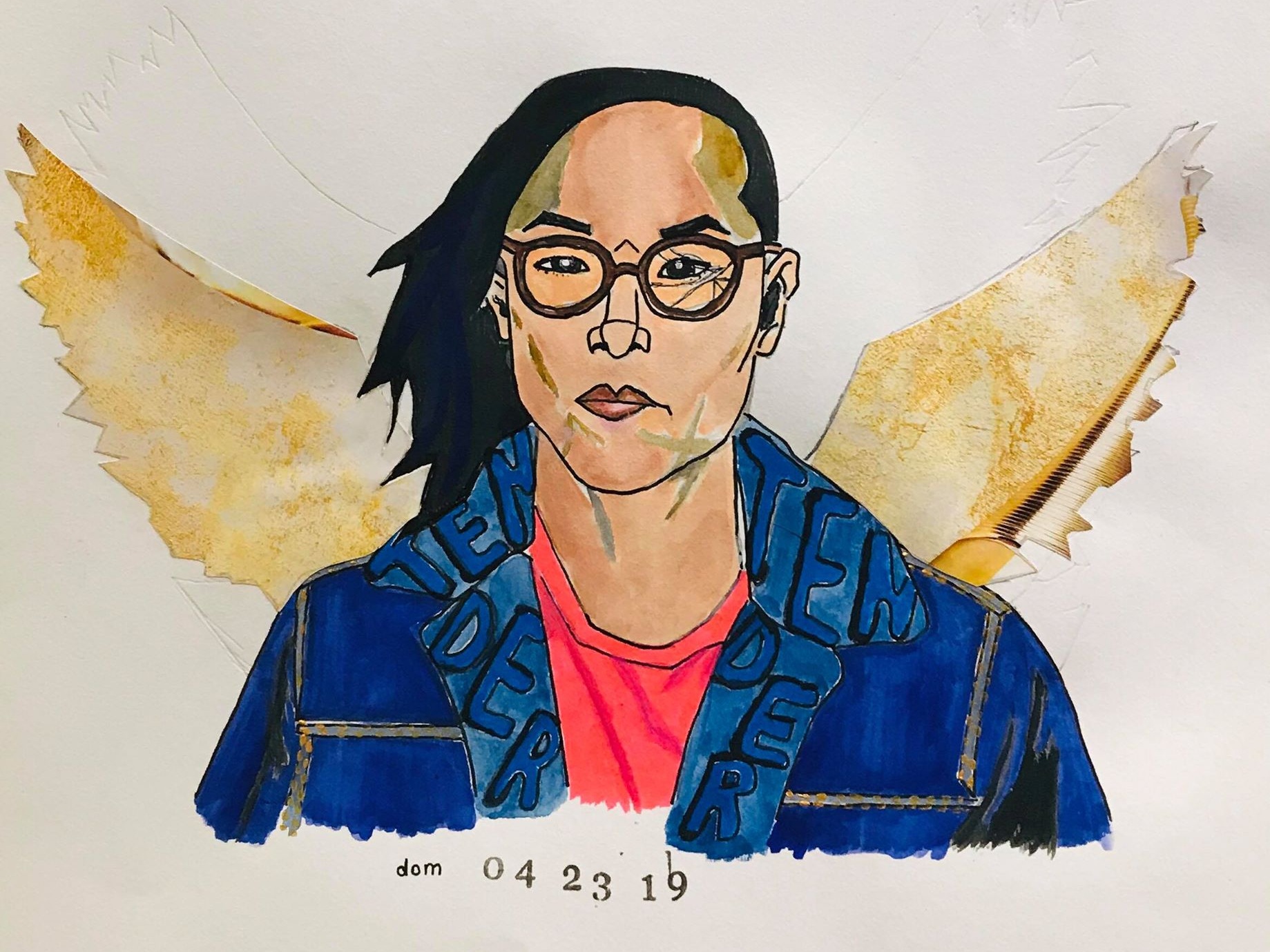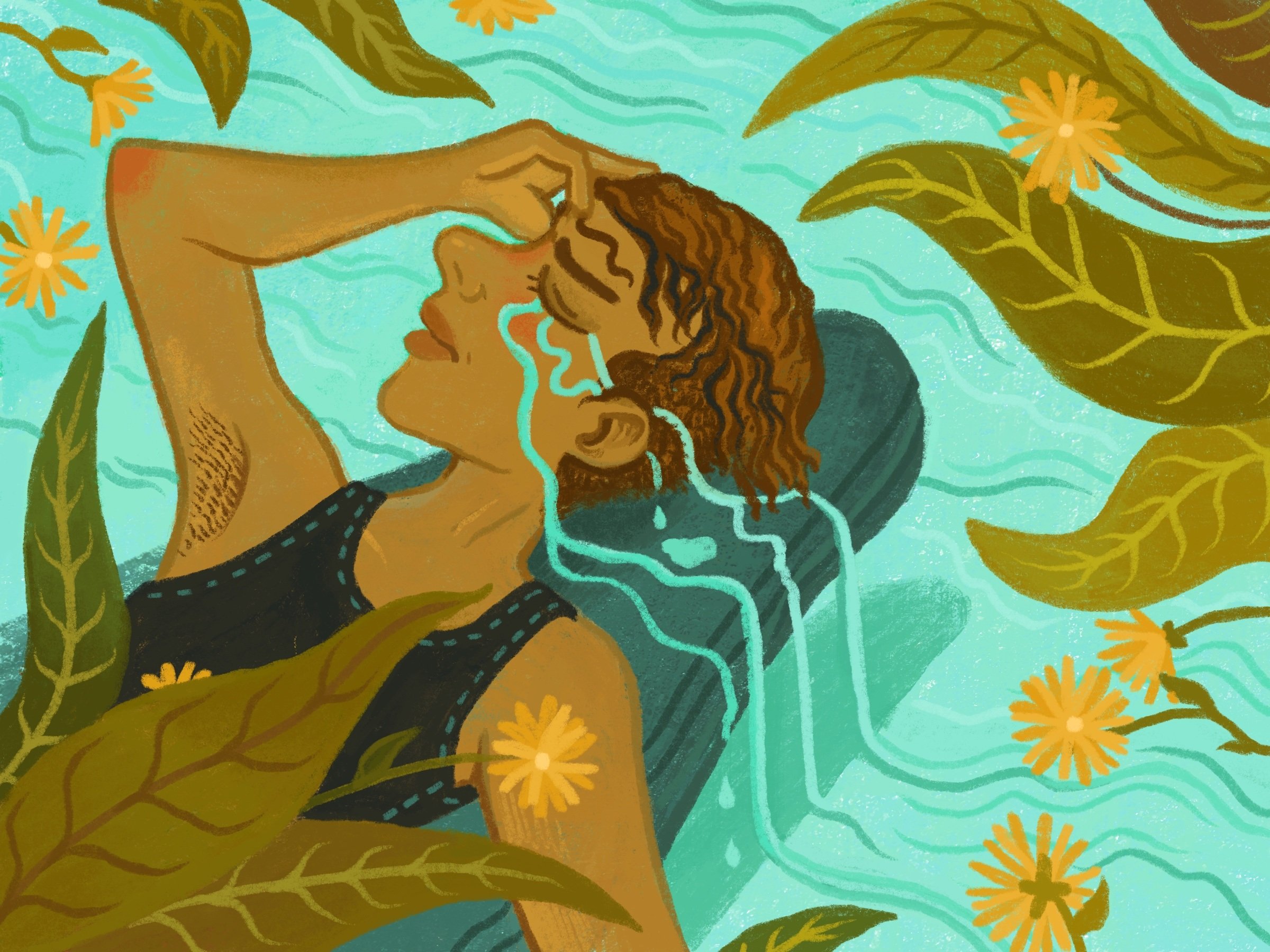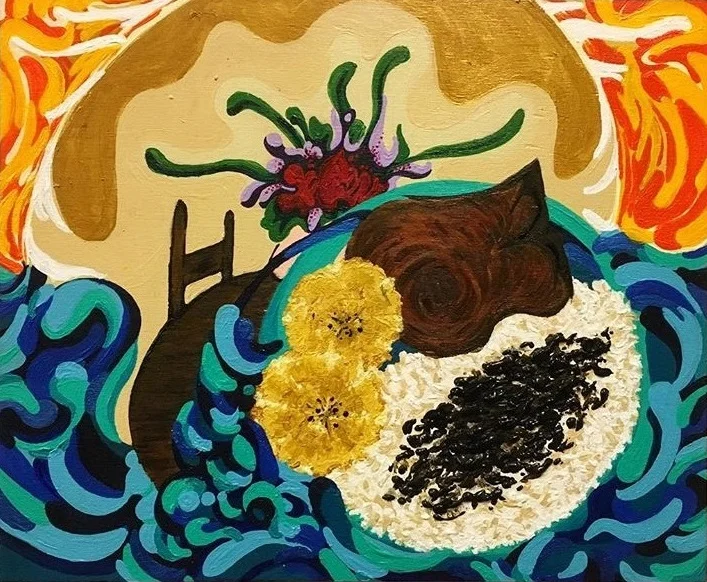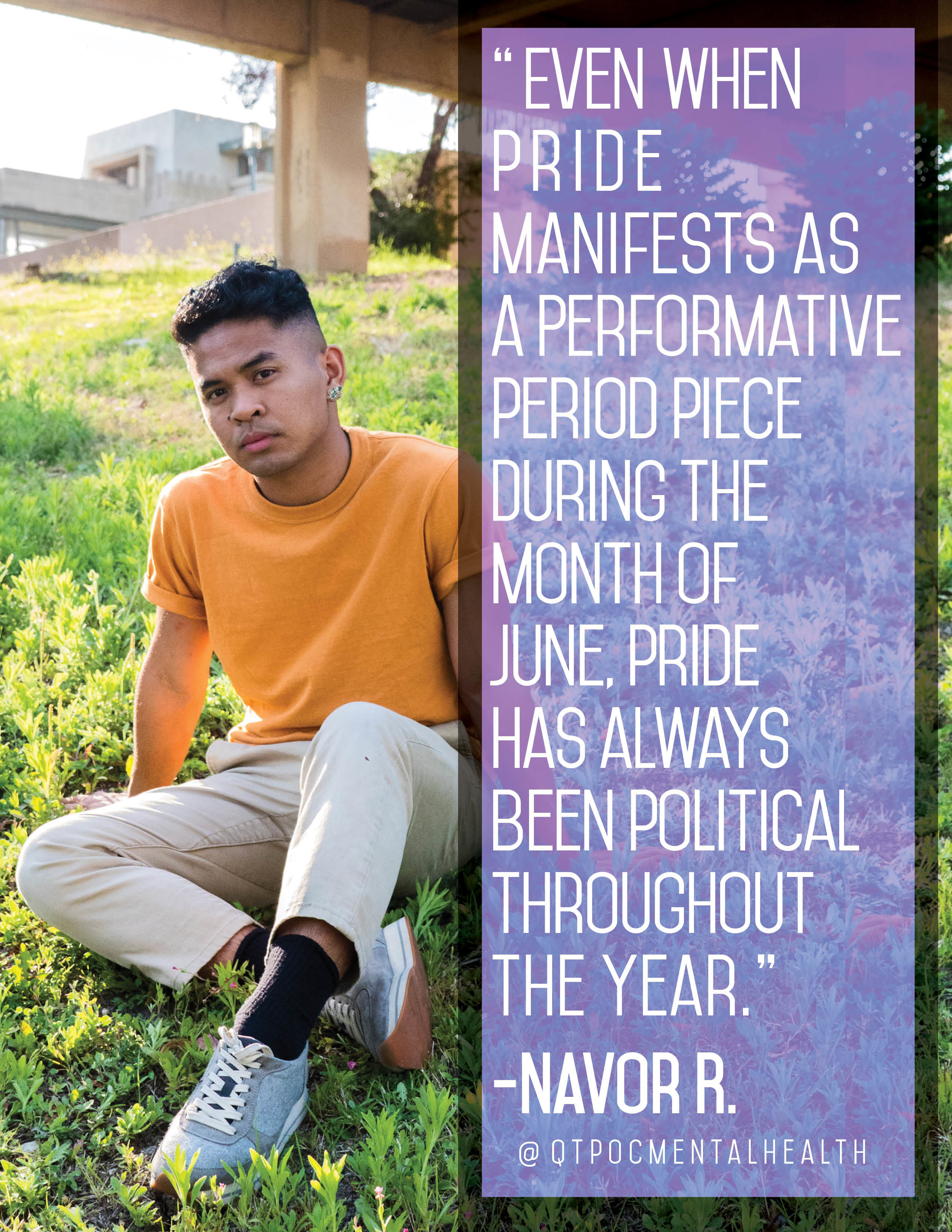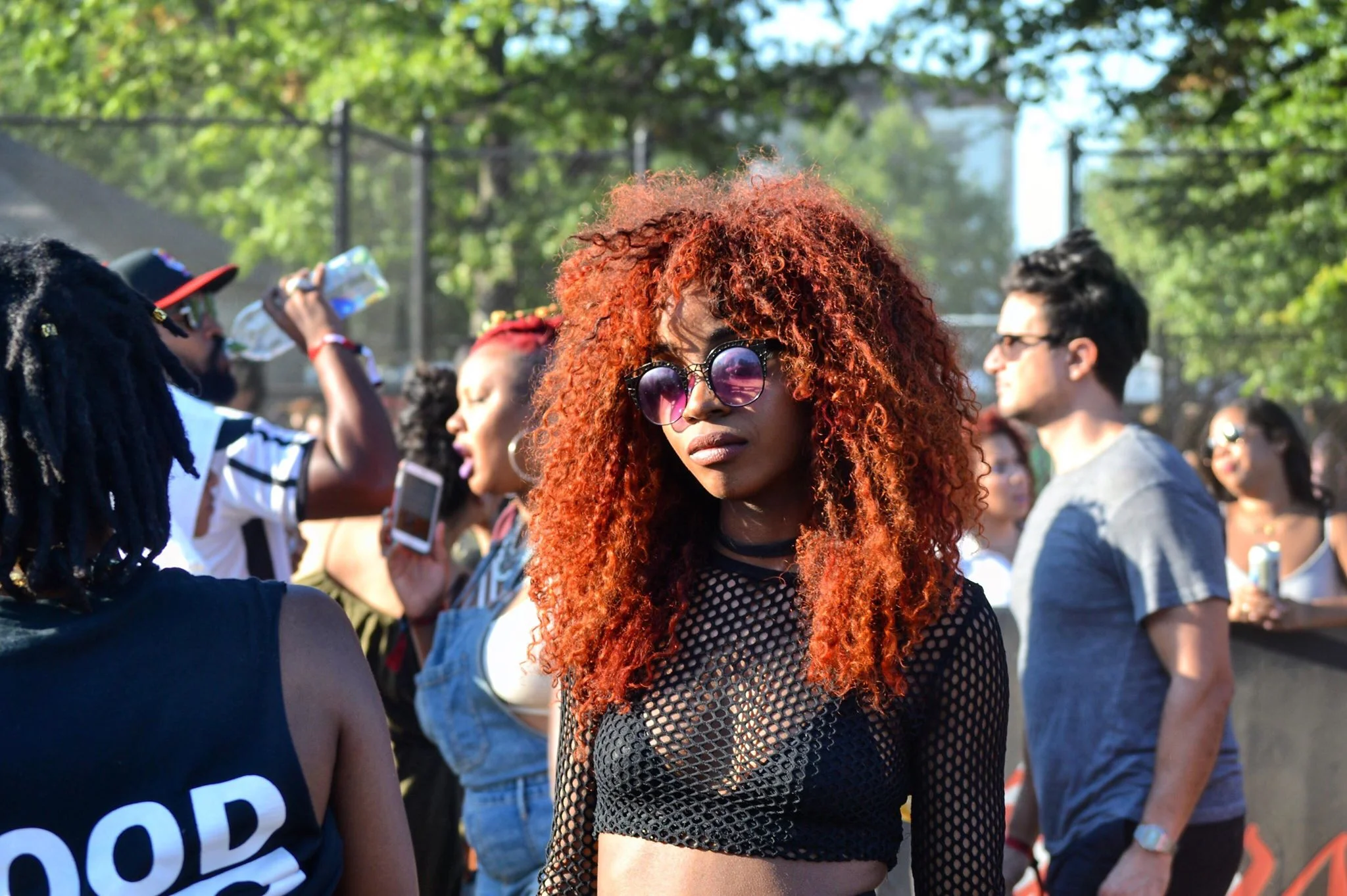Photo credit: Eli Sleepless
“We are experimenting with new strategies of survival. Their efficacy is necessarily not reflected in dominant culture, and yet throughout history we hear stories of folks refusing competition in precisely this way and daring to walk together to another rhythm . . . We just have to remember we are not alone in this journey. We sit to practice being with ourselves so we can better sit, love, and live with those who will show up and help us along the way.”
– Jasmine Syedullah, PhD, Radical Dharma: Talking Race, Love & Liberation (pg. 86)
Everybody has access to things that others don’t. Everybody perpetuates the oppression of others – some more, some less – but we all have areas of our lives where we must take accountability, regardless of our intent, for the harm we do to others. It’s easy to agree with intent vs. impact, yet there are times we all get defensive. That’s human nature. Nobody likes when our privilege, that access we have that others don’t, gets brought to our attention.
With the way conversations around privilege currently unfold, oppression olympics is unavoidable. Most of us don’t want to fall into this trap, but it keeps happening. We’re in this dynamic because of the very systems of oppression that created this mess. It’s easier to focus on the problem we know caused the pain, our oppressors, than the solutions we don’t yet know that lead to healing. In participating in oppression olympics, we’re fighting to share space for pain to be recognized when there isn’t enough available. Instead, we need to create more spaces where it’s possible to embrace our whole selves, and one path forward is through honoring our individual power.
To move forward together in solidarity, it’s time to reframe privilege, specifically how it operates in our day-to-day lives. Instead of looking at privilege as a thing others have that gets in our way as [insert identity here] – or only theorizing how we have it large-scale within overlapping oppressive systems – we must consider the privileges we have as opportunities. Just as talents lead us on separate paths in life, we all have different privileges, which we don’t choose, and we get to experience different things as a result of them, like it or not.
In order to be truly whole as individuals, we cannot deny parts of ourselves. Embracing who we are is an act of healing. Yes, that uncomfortable act of owning our privileges can be a step towards the healing each of us needs. By scrutinizing and simply sitting with our personal privileges, we stand to gain these things and more:
1) Privilege points us to our agency.
Whether you have a little privilege or a lot, it’s easy to feel helpless when considering the scope of systemic oppression. Growth is always possible, so once we accept the need to change, the only question is how.
Rather than focus on what you can’t do, refocus on what you can. The roles we play in liberation are directly tied to our privileges as much as our oppressions. By stopping to consider how we move through the world differently as individuals, we can understand the points of power we have in society. One person may be able to organize protests, whereas another organizes people online. One person can be working within the political system, while another works outside of it. These are all valuable actions.
This is especially important for those of us living at intersections of oppression. Feeling disempowered from all sides can easily lead to depression, anxiety, and other health issues that are compounded by stress.
2) Owning privilege stops us from perpetuating harm.
“While I’m trying to learn to undo this [violent system] I’m still being taught to hate.” – Karen Naimool, In My Mind: an LGBT POC Mental Health Conference, 2016
As much as the many systems of oppression harm us, that doesn’t make us free from being agents within one or more of those systems. Otherwise our goal wouldn’t be liberation for ourselves and everyone around us. Until we get there, we’re tangled in this together.
Learning how our privileges operate in the power dynamics of an oppressive society is a powerful way we can slowly work out of this rut, or more accurately this network of interconnected ruts we trip over and get buried in. What we should all try for is to stand up and see the sunshine, not stay in this mud and dirt that clouds our vision.
Once we gain a clearer line of sight about where we fit into society, what access that does or doesn’t grant us, it’s no longer painful when someone points it out. If you’re already aware of how being light-skinned POC (like me) or cis or masculine impacts you and those around you, it doesn’t feel like an attack. And that means there’s no need to retaliate.
3) Seeing how we’re all complicit creates more grounded connections to others.
We often heal in community. But what are we healing from exactly? Point #2, the fact we’re all putting harm into the world just by being here together. Even when we’re not actively harming, for example using ableist language, our points of privilege can hurt others simply by leading us to neglect their suffering because we can’t see or understand it. Owning our privileges is one big step we can take towards reducing our personal harm output.
By having the strength to say something like, “I’m at a high risk for violence as a trans man of color and am oppressed on so many sides, but I can pursue a law degree to help undocumented individuals because of my access to education and masculine privilege,” you not only are acknowledging your own agency in the world, but using it to create space for others.
The key question isn’t, “How can I liberate myself from my oppression?” It’s, “How can I liberate myself in a way that invites others, including those I may unintentionally oppress, to be liberated along with me?” In that way, we can foster deeper connections because we’re working together, acknowledging none of us alone can have everything it takes to tackle systemic inequality.
Depression, PTSD, and other mental health challenges can make it difficult to stay aware of the tools we have available to support ourselves and others. But they’re already within reach. We all have skills and resources to contribute to a community, whether it’s cooking food, providing shelter, teaching, holding space, gathering resources or creating them. Figuring out our role is one way we can stay in our lane and conscientiously offer space to others.
Understanding our sense of belonging in a community – which takes practice, patience, and support from others to figure out – means we’re learning to leverage our privileges in a way that’s fulfilling and helps other people (at least more than it hurts). When we’re owning the space we’re already in, not crowding into where others are, it sets the tone for us to feel mutually respected, and enables us to be rooted in our place in the community.
4) We develop deeper compassion for ourselves through complete, radical acceptance.
That fragile feeling of confronting our privileges? That’s our ego throwing a tantrum that we aren’t perfect. It’s a stage of discomfort we have to learn to sit with, breathe through, and acknowledge. It’s important to accept that we have limitations, not only because otherwise we’ll hurt others and push them away, but because that’s also how we can better embrace ourselves.
We must be compassionate with our personal limitations and forgive ourselves for what we don’t know. We must be kind to our feelings, even those of privilege, and be loving towards ourselves even as beings who are complicit in systemic oppression. This requires an acknowledgement that some of our sadness and hurt stems from being oppressors, not just being oppressed.
If we accept this challenge, we can untangle knots of self-blame and shame and learn to more fully love ourselves, even when we make mistakes and act in ways that uphold problematic systems of privilege.
5) It’s impossible to truly embrace intersectionality without recognizing or privileges.
“You have learnt something. That always feels at first as if you have lost something.” – George Bernard Shaw
As individuals living at the intersections of oppression, it can be a huge relief to learn about the concept of intersectionality. And it’s natural to first center ourselves in that understanding. It’s a powerful framework for seeing where we fit into the world in terms of gender, race, sexual orientation, class, ability, desirability, and more.
I learned the word “intersectionality” from a cishet white woman, a former roommate at this apartment I shared with three heteronormative, college-educated white women from financially secure families. So of course I was like, “This is about me!” As a disabled trans/queer person of color, I was only considering my own experiences, not the history of the word and the fight by Black women to be heard regarding racialized sexism and misogynoir.
But intersectionality doesn’t work when we place ourselves at the center. Nobody is truly at the center, and putting any one identity in the middle of understanding oppression is an oversimplification. Unless we make space for everyone’s experiences to be recognized within the framework of systems of oppression, our practice of intersectionality fails.
It’s when we stubbornly stay in the center that we begin to participate in competitive dynamics. By owning our privileges, we can move aside and take a seat when necessary, validating each other’s pain alongside our own.
Owning Privilege in Practice
If you can acknowledge what your skills and power are in the world, even when you feel so fucked by life that you’re considering whether it’s all worth it, you can keep going one day at a time. That’s my survival strategy anyway. That’s how QTPoC Mental Health and Rest for Resistance came to be.
I couldn’t force the existing emotional support systems to make space for me as a disabled non-binary person of color. It got to the point that, in order to survive, I had to stop looking for help in the places we’re taught to look for help. And to be real, I can barely go outside due to severe agoraphobia, so while I don’t have the power to organize often in person, I have space in my life to be here online. Not everyone has that, but I do. Not everyone studies writing and communication, or likes running social media, but I do. My life can feel very small from anxiety, and yet in that little tiny space I have in the world, there are unique ways I can give back.
There’s still so much work I can do to accept my privileges, explore the opportunities I have to use my abilities and access to help myself and others. This is a commitment we can all make for our self-care – because self-care is about nourishing ourselves, not necessarily comforting ourselves.
It’s tough to take on these more vulnerable acts of self-care alone, and so we can also commit to being there for one another. We can especially help and get help from those at similar intersections, exploring our roles in community and growing our roots together to create a powerful, interconnected system.
We need community support to continue publishing!
Articles and artwork like these are only possible through your contributions. Please donate today to sustain the wellbeing of artists, writers, healers, and LGBTQ2IA+ people of color.
You can also support our team by picking up
a Rest for Resistance print zine.
Image description:
A thin, light-skinned Black person looking at their reflection in a mirror. She is wearing a white tank top and have dark natural hair which she is holding up over their head with both arms. The mirror is oval with an ornate gilded frame, and the wall behind it is soft pink.
About Eli Sleepless:
Eli Sleepless is a self-taught latinx film photographer. Their genderqueerness and nyc upbringing is important to their work. Find more of their work on tumblr, instagram, facebook, and our main page.
About Dom Chatterjee:
The editor-in-chief of Rest for Resistance and founder of QTPoC Mental Health, Dom believes in the power of community to combat oppression. Dom is a non-binary desi-dutch-american person living with multiple disabilities.









